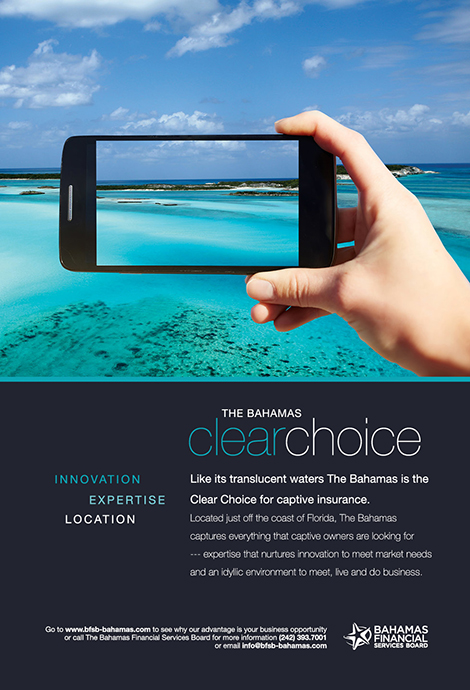Anyone looking to domicile in Canada need look no further than British Columbia, particularly as it’s the country’s only active captive-welcoming jurisdiction.
Anyone looking to domicile in Canada need look no further than British Columbia, particularly as it’s the country’s only active captive-welcoming jurisdiction.
According to Neil MacLean, a lawyer at Guild Yule and chair of the Canadian Captive Insurance Association (CCIA), British Columbia introduced its captive legislation in 1988. Since that time, its numbers have remained relatively constant, with 20 captives and 11 reciprocals.
MacLean explains that most, but not all, of British Columbia’s captives cater to British Columbia risks.
“There are various association captives (nurses, veterinarians, lawyers and others) and there are multi-nationals who decide that a British Columbia captive is the best vehicle for transfer of British Columbia risk, even with their use of other risk transfer mechanisms, including other captive domiciles, for offshore risk.”
“Captives may write property, casualty, including directors and officers liability and product liability, errors and omissions, life, health, sickness and accident insurance. Captives are prohibited from writing surety, other than reinsurance of surety, and are not permitted to write third party risk or carry on the class of motor vehicle insurance, other than fleet insurance by corporations.”
But in general, MacLean feels that British Columbia cannot be tied down to one single category of captive. In his eyes the domicile is suited to any number of businesses, associations and institutions.
Trevor Mapplebeck, managing director of alternative risk solutions at Marsh Canada, says that British Columbia doesn’t cater to a particular niche, with the firm providing services across all industries, in both the public and private sector.
Mapplebeck says: “Marsh Canada acts primarily as a risk advisor to Canadian and international companies with an interest in setting up or operating a captive in British Columbia. While Marsh provides captive management services in major domiciles around the world, Marsh Canada has elected to pursue a strategy of advisory services with respect to captives in Canada.”
“We provide feasibility, strategic review and captive optimisation advice in a domicile neutral capacity, as well as risk retention/transfer optimisation services for our Canadian clients. We also advise non-Canadian companies with respect to the benefits of a captive in British Columbia.”
When asked why potential clients should choose British Columbia, Mapplebeck cited various reasons, saying that: “The regulatory environment is favourable, capital requirements are reasonable, and mind and management is not an issue for Canadian organisation.”
“The province and country are [also] obviously politically stable [and] there are efficiencies of service providers (an organisation can use the same bank, legal advisor, auditor and risk advisor, unlike some offshore jurisdictions) which can contribute to better efficiency of operations than other domiciles.”
MacLean also highlights the regulatory environment as a reason for domiciling in British Columbia, as it offers advantages including, flexible legislation, no specific solvency ratios, no policy form or rate requirements, easy access to reinsurance markets, and lower operating costs relative to other domiciles.
“Another is tax advantages, including no federal excise tax, foreign accrual property income rules are not applicable, deductibility of loss reserves, no ‘mind and management’ question and an international business activity tax incentive programme provides up to a full refund of provincial tax on eligible activities, such as captive insurance,” he adds.
Keeping in check
The Financial Institutions Commission, an agency of the provincial government, regulates captives domiciled in British Columbia. According to MacLean, the commission strongly supports and promotes captive insurance in the domicile.
He says: “The [commission] takes a hands on, individualistic approach to each of the captives and new applicants, and provides assistance to the extent possible within the regulatory framework.”
“[It also] maintains an excellent balance between thorough, consistent application of the existing regulations and collaborating an guiding the [CCIA] in implementing its mandate to promote the domicile in and outside of the province.”
These captives, explains MacLean, are governed by the Insurance (Captive Company) Act that allows for three types of captives: pure, associated, and sophisticated. The latter’s insureds are not given the same level of protection under insurance laws as an average insurance consumer because they are more ‘sophisticated’.
Catering for captives in British Columbia is the CCIA. As chair of the association, MacLean says it comprises captive owners, managers and service providers.
“The CCIA provides a forum for the professional development of all members and it promotes the British Columbia captive insurance industry. It does so by reviewing and commenting on government-proposed legislative changes, providing training sessions on topics of interest and industry updates, making recommendations to regulators regarding changes to the legislation that would enhance the attractiveness of the domicile, and responding to queries from captive owners and service providers in and outside of British Columbia.”
Despite the CCIA’s efforts to promote the captive insurance industry in British Columbia, progression is still needed for the domicile to raise its profile and become more established.
As MacLean explains, the legislation in British Columbia needs modernising “to offer risk managers additional captive models, such as branch, protected cell, special purpose and agency captives. The [CCIA] has been working on a discussion paper to address these opportunities, with the involvement of the [commission].”
“Also, with respect to risks in other Canadian jurisdictions, there are other Canadian provinces that do not recognise British Columbia domiciled captives as licensed insurers, necessitating a front or special licensing.”
Mapplebeck feels that companies should seriously review and consider British Columbia in their analysis when considering a captive domicile location, with the only key drawback being a tax-related issue.
“The key drawback, which is typically not the primary motivation for setting up a captive, is the lack of tax benefit that is otherwise afforded Canadian companies with non-Canadian risk and operations. Otherwise, companies should seriously review and consider British Columbia in their analysis.”





